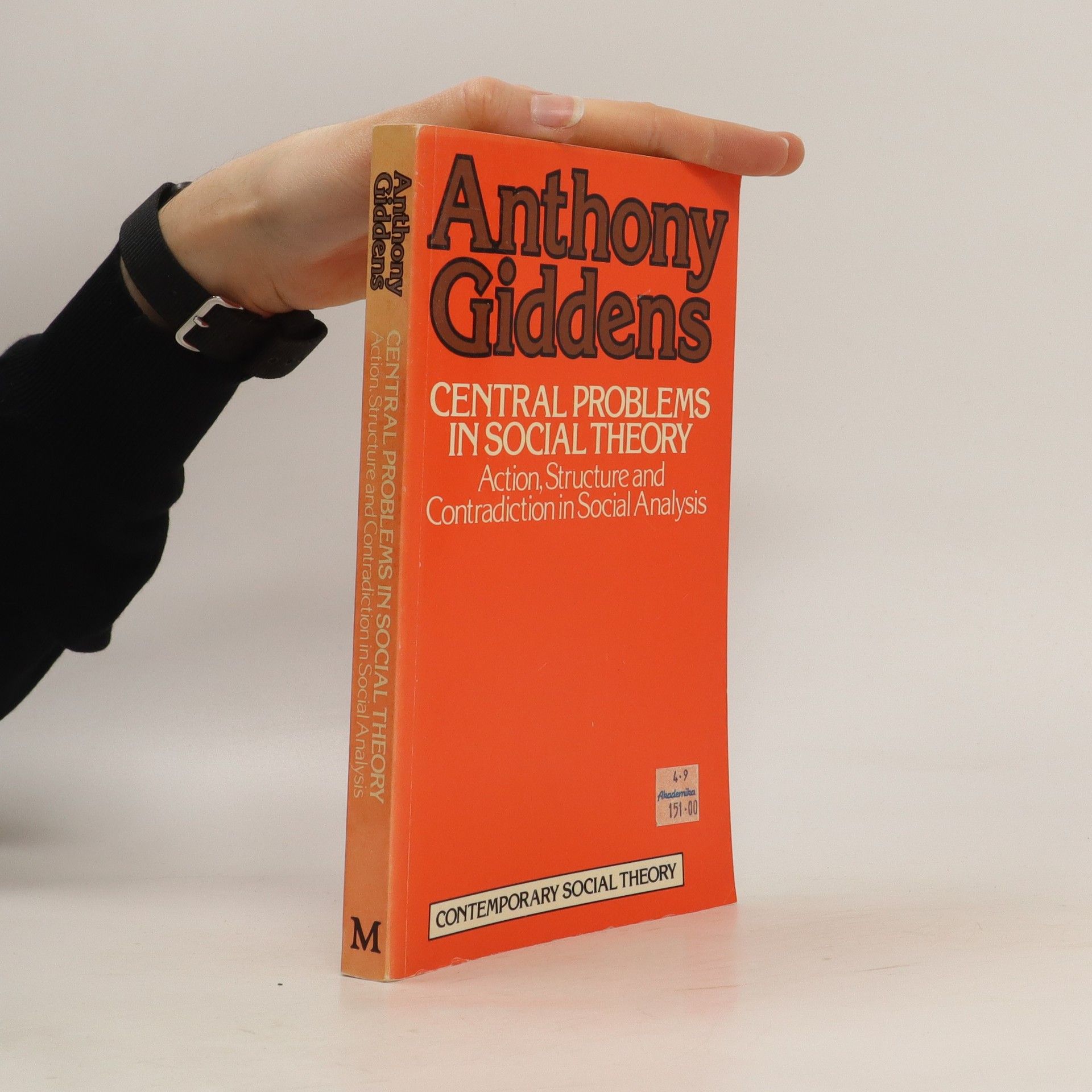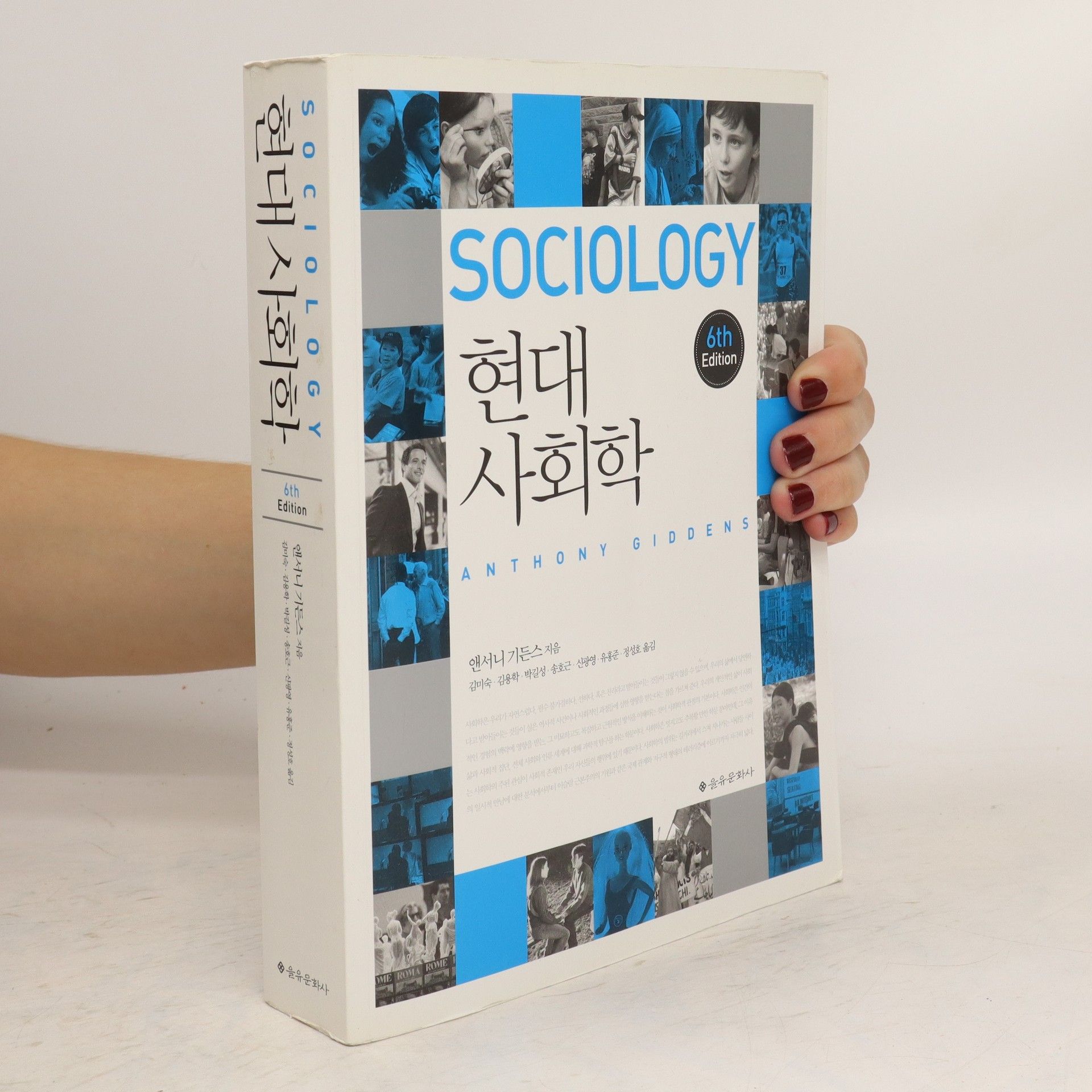Współczesna nauka o społeczeństwie jest niezwykle zróżnicowana: zajmuje się często odległymi od siebie problemami, stosując szeroką paletę podejść metodologicznych. Specyfikę socjologii wyznaczają jej kluczowe pojęcia, za pomocą których ta dyscyplina jest w stanie wyjaśnić życie społeczne. Pojęcia te również ciągle ewoluują i zmieniają swoją treść. Socjologia. Kluczowe pojęcia to pozbawiony specjalistycznego żargonu przewodnik po najważniejszych terminach współczesnej socjologii – od kapitalizmu, przez władzę i ruchy społeczne po seksualność i tożsamość. Anthony Giddens i Philip W. Sutton w przystępny sposób omawiają każde pojęcie, sytuują je w określonym kontekście historycznym, a także pokazują, w jaki sposób jest ono używane obecnie przez badaczy społecznych. Dzięki temu książka może służyć nie tylko studentom, wykładowcom i badaczom, ale także wszystkim, którzy chcą lepiej zrozumieć otaczającą ich rzeczywistość. Wydanie, które przekazujemy do rąk czytelników, zostało uzupełnione o nowe pojęcia odzwierciedlające rozwój myśli społecznej i teorii socjologicznej.
Anthony Giddens Book order (chronological)
Anthony Giddens is a British sociologist renowned for his theory of structuration and his holistic view of modern societies. He fundamentally shaped sociological thought by developing a framework that bridges macro and micro levels of social life. His work delves into critical aspects of modernity, including globalization, the transformation of intimacy, and self-identity in contemporary times. Giddens thus offers a comprehensive perspective for understanding the dynamics and trajectory of modern societies.







Sociology: Introductory Readings, 4th Edition
- 354 pages
- 13 hours of reading
The fourth edition features a comprehensive collection of readings that reflect contemporary sociological thought and practice. It has been meticulously revised and updated, making it an engaging resource for those looking to explore the diverse aspects of sociology. This edition aims to stimulate critical thinking and provide a broad understanding of the field, catering to both newcomers and those familiar with sociological concepts.
Socjologia
- 1164 pages
- 41 hours of reading
Nowe wydanie jednego z najbardziej znanych podręczników socjologii to lektura obowiązkowa dla studentów oraz wszystkich pragnących zrozumieć otaczającą rzeczywistość. W ciągu ostatnich 10 lat od poprzedniego polskiego wydania nastąpił ogromny rozwój wiedzy socjologicznej, co znalazło odzwierciedlenie w książce. Zmiany w świecie wymusiły aktualizacje treści, w tym nowe materiały o wojnach, terroryzmie i zagrożeniach ekologicznych. Na prośby czytelników autorzy wprowadzili nowe elementy dydaktyczne, podkreślając wpływy globalizującego się świata. Socjologia angażuje się w zmieniający się świat społeczny, badając zjawiska budzące lęk, jak zmiany klimatyczne czy terroryzm. W obecnym wydaniu autor stara się oddać ekscytację, która przenika najlepsze prace socjologiczne, inspirując nowe pokolenie badaczy. W książce nie ma nadmiernie wyrafinowanych koncepcji ani socjologicznego żargonu, a każdy rozdział odnosi się do najnowszych osiągnięć dyscypliny oraz współczesnych problemów. Autor pisze w pierwszej osobie o swoich pracach, aby czytelnicy mieli jasność co do jego osiągnięć. Przytacza także poglądy krytyków, starając się zachować obiektywizm. W książce opisano główne perspektywy socjologiczne oraz najważniejsze wyniki współczesnych badań w wyważony sposób.
Essential Concepts in Sociology
- 248 pages
- 9 hours of reading
Social life is in a constant process of change, and sociology can never stand still. As a result, sociology today is a theoretically diverse enterprise, covering a huge range of subjects and drawing on a broad array of research methods. Central to this endeavour is the use of core concepts and ideas which allow sociologists to make sense of societies, though our understanding of these concepts necessarily evolves and changes. This clear and jargon-free book introduces a careful selection of essential concepts that have helped to shape sociology and others that continue to do so. Going beyond brief, dictionary-style definitions, Anthony Giddens and Philip W. Sutton provide an extended discussion of each concept which sets it in historical and theoretical context, explores its main meanings in use, introduces relevant criticisms, and points readers to its ongoing development in contemporary research and theorizing. Organized in ten thematic sections, the book offers a portrait of sociology through its essential concepts, ranging from capitalism, identity and deviance to the digital revolution, the environment and intersectionality. It will be essential reading for all those new to sociology as well as anyone seeking a reliable route map for a rapidly changing world.
The Constitution of society
- 440 pages
- 16 hours of reading
Anthony Giddens has been in the forefront of developments in social theory for the past decade. In The Constitution of Society he outlines the distinctive position he has evolved during that period and offers a full statement of a major new perspective in social thought, a synthesis and elaboration of ideas touched on in previous works but described here for the first time in an integrated and comprehensive form. A particular feature is Giddens's concern to connect abstract problems of theory to an interpretation of the nature of empirical method in the social sciences. In presenting his own ideas, Giddens mounts a critical attack on some of the more orthodox sociological views. The Constitution of Society is an invaluable reference book for all those concerned with the basic issues in contemporary social theory.
Turbulent and Mighty Continent
- 224 pages
- 8 hours of reading
Winner of the 2014 European Book Prize. A "United States of Europe", Winston Churchill proposed in 1946, could "as if by a miracle transform" that "turbulent and mighty continent". "In this way only", he continued, "will hundreds of millions of toilers be able to regain the simple joys and hopes which make life worth living".
Kniha dává čtenáři nahlédnout do vztahu mezi intimissimem, kterým láska vždy byla, a převratně se měnícím světem kolem nás. Je odbornou sociologickou studií soukromých vztahů, zasažených zrychlujícím se tempem technických, ekonomických a politických změn. Novým způsobem pohlíží na roli sexuality v moderní kultuře a vymezuje se proti teoretikům „sexuální revoluce“. Soustřeďuje se především na to, co se z proměny vnímání sexuality v posledním století, promítlo do myšlení a jednání moderního člověka. Ukazuje „romantickou lásku“ jako významnou historickou inovaci, která změnila svět podobně jako „protestantská etika a duch kapitalismu“. Text odpovídá přístupným způsobem na otázky, které se modernímu člověku vynořují jako životně důležité: otázky jeho životního projektu a možnosti sdílení takového projektu prostřednictvím milostné vášně. Kniha je určena studentům a učitelům sociálních věd, expertům (v oblastech rodina, intimita, gender), novinářům, vzdělaným laikům. Anthony Giddens je v české akademické obci všeobecně považován za dnes nejvýznamnějšího žijícího sociologa. Jeho práce znamenaly významný pokrok v rozvoji obecné sociologické teorie. Do češtiny byly zatím přeloženy především jeho studie o postmoderní době a studie politologické.
현대 사회학 (hyeondae sahoehag)
- 963 pages
- 34 hours of reading
"Climate change differs from any other problem that, as collective humanity, we face today. If it goes unchecked, the consequences are likely to be catastrophic for human life on earth. Yet for most people, and for many policy-makers too, it tends to be a 'back of the mind' issue. ... [This book] argues controversially, we do not have a systematic politics of climate change. Politics-as-usual won't allow us to deal with the problems we face, while the recipes of the main challenger to orthodox politics, the green movement, are flawed at source." - cover.
Over to You, Mr Brown
- 256 pages
- 9 hours of reading
Labour stands at a decisive point in its history. A change of leadership can help reinvigorate the party, but winning a fourth term of government will be impossible unless Labour's ideological position and policy outlook are thoroughly refurbished. What form should these innovations take?




